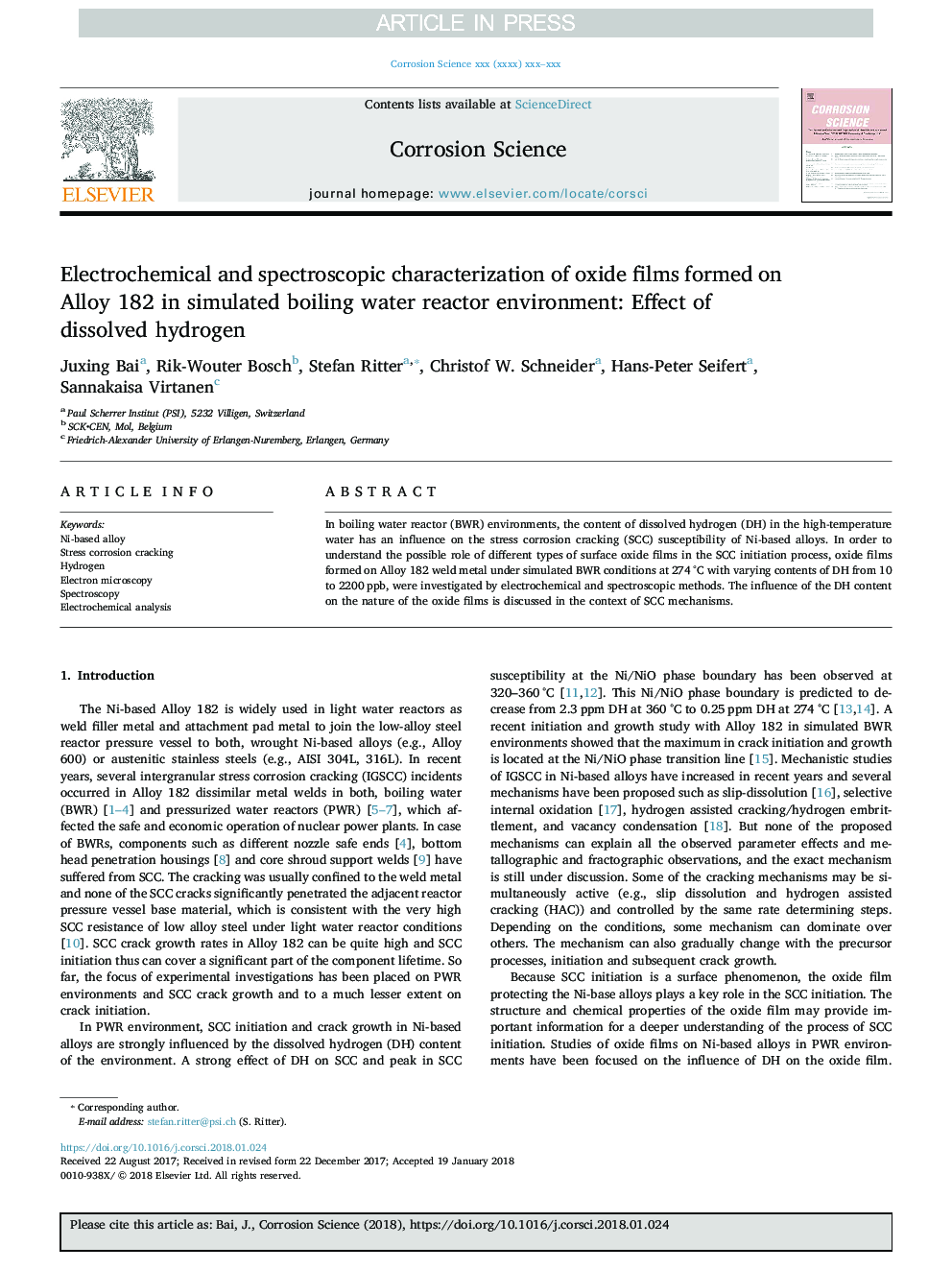| Article ID | Journal | Published Year | Pages | File Type |
|---|---|---|---|---|
| 7893817 | Corrosion Science | 2018 | 13 Pages |
Abstract
In boiling water reactor (BWR) environments, the content of dissolved hydrogen (DH) in the high-temperature water has an influence on the stress corrosion cracking (SCC) susceptibility of Ni-based alloys. In order to understand the possible role of different types of surface oxide films in the SCC initiation process, oxide films formed on Alloy 182 weld metal under simulated BWR conditions at 274â¯Â°C with varying contents of DH from 10 to 2200â¯ppb, were investigated by electrochemical and spectroscopic methods. The influence of the DH content on the nature of the oxide films is discussed in the context of SCC mechanisms.
Keywords
Related Topics
Physical Sciences and Engineering
Materials Science
Ceramics and Composites
Authors
Juxing Bai, Rik-Wouter Bosch, Stefan Ritter, Christof W. Schneider, Hans-Peter Seifert, Sannakaisa Virtanen,
